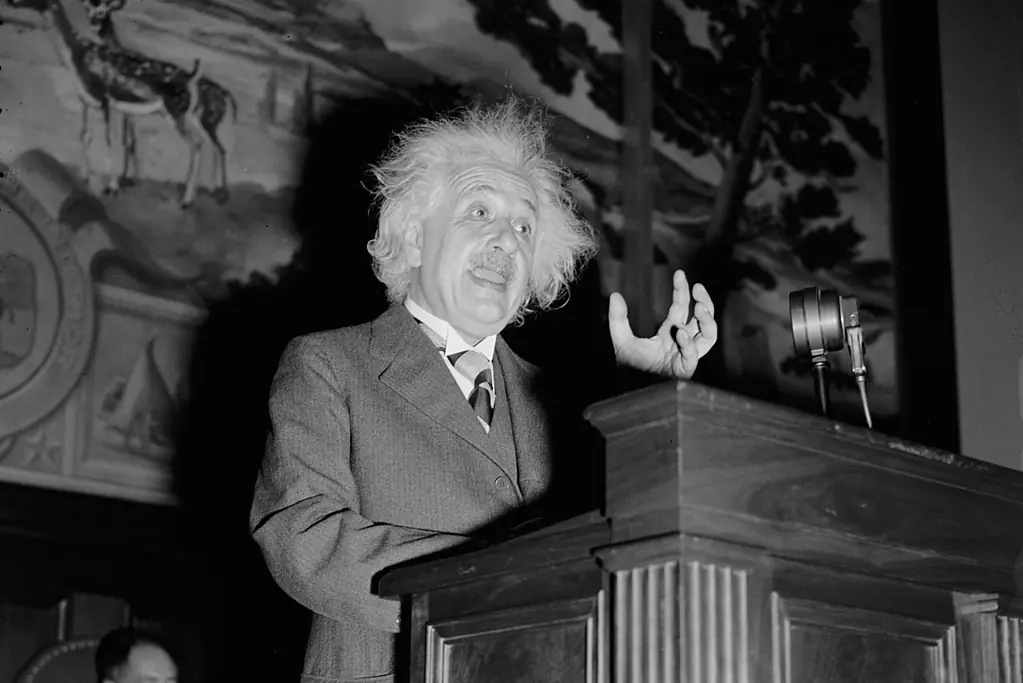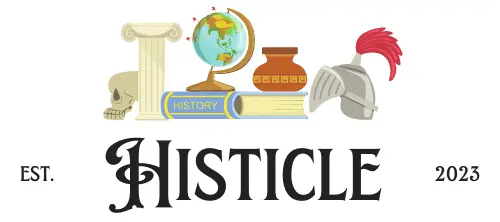
Facts about Albert Einstein often focus solely on his scientific achievements, overlooking the multifaceted individual he was.
From his iconic theory of relativity to his memorable quotes, Einstein has left an indelible mark on history.
Yet, how much do we really know about the man behind the theories and chalkboards?
This article unpacks 10 captivating facts that paint a fuller portrait of Einstein—as a struggling student, a civil rights advocate, a music lover, and much more.
Dive into these compelling facts with us, and you’ll discover that Einstein was not just a physicist and mathematician, but also a complex and deeply human figure.
By the end of this journey, you’ll gain a richer understanding of this remarkable individual, whose influence extends far beyond the realm of science.
Exploring 10 Fascinating Facts About Albert Einstein
Kicking off our list of 10 fascinating facts about Albert Einstein is his groundbreaking work on the theory of relativity.
This revolutionary concept not only transformed our understanding of space, time, and gravity, but it also laid the foundation for much of modern physics.
1. Theory of Relativity
Among the most groundbreaking facts about Albert Einstein is his development of the theory of relativity, which forever altered our understanding of space, time, and gravity.
Published in 1905 as the Special Theory of Relativity and later expanded to the General Theory of Relativity in 1915, Einstein’s work dismantled previous notions of a fixed, unchanging universe.
Special Relativity introduced the concept that time and space are relative and intertwined, effectively laying to rest the classical idea of absolute time and space.
General Relativity further expanded these ideas by introducing gravity as a warping of this space-time fabric around massive objects, rather than a force acting at a distance.
These theories have been confirmed through various experiments and observations, including the famous 1919 solar eclipse experiment that verified the bending of light around the sun.
Today, the principles of relativity are foundational to various fields of physics and have practical applications ranging from GPS technology to the understanding of black holes.
2. Nobel Prize in Physics
In a list of intriguing facts about Albert Einstein, his revolutionary theory of relativity stands out.
Published initially in 1905 as the Special Theory of Relativity, this concept shook the scientific world.
Essentially, it argued that time and space are not fixed but relative to the observer.
Then, in 1915, Einstein introduced the General Theory of Relativity, a groundbreaking extension.
This theory posited that gravity is not a force, but a curve in the space-time fabric created by mass.
Remarkably, the 1919 solar eclipse experiment validated his theory by demonstrating light bending around the sun.
Today, these principles are cornerstones in physics, affecting everything from GPS technology to our understanding of black holes.
3. Non-Speaking Childhood
Among the more surprising facts about Albert Einstein is his late-speaking childhood.
Contrary to what one might expect from a future genius, Einstein didn’t speak until he was around three years old.
This delay concerned his parents, who even consulted a doctor about it.
Interestingly, despite his late start in speaking, Einstein showed an early passion for understanding the world.
For instance, he was fascinated by a compass he received, captivated by the invisible forces at play.
While some labeled him as a slow learner initially, Einstein’s non-speaking phase had no bearing on his later intellectual capabilities.
This early period of his life serves as a compelling example that traditional milestones don’t necessarily dictate future success.
4. E=mc^2 Equation
One of the most iconic facts about Albert Einstein is his equation, (E=mc^2), introduced in 1905.
This formula reveals the equivalence of mass and energy, revolutionizing physics.
Essentially, it says a small amount of mass can convert into a large amount of energy and vice versa.
This insight had profound implications for both theoretical and applied sciences.
For instance, the equation is foundational in nuclear physics, underpinning both fission and fusion processes.
Moreover, it plays a role in technologies like nuclear reactors and medical imaging.
Einstein’s equation has become a symbol of scientific innovation and continues to be tested and applied in various domains today.
5. Academic Struggles
Among the lesser-known facts about Albert Einstein are his academic struggles during his early years.
Contrary to popular belief, Einstein was not always a top student. In fact, he faced challenges in the rigid educational systems of his time.
Particularly, he clashed with teachers and was even expelled from a school in Germany.
Later, Einstein struggled to gain academic employment, working as a clerk before his theories gained recognition.
These early setbacks didn’t deter him, however.
Ultimately, his unconventional thinking led to groundbreaking contributions in physics, proving that a rocky academic start doesn’t predetermine one’s future.
6. Civil Rights Advocate
An often-overlooked aspect among facts about Albert Einstein is his role as a civil rights advocate.
After moving to the United States, Einstein became increasingly vocal about racial inequality.
Specifically, he joined the NAACP and publicly condemned segregation and racial discrimination.
Moreover, he used his platform to support anti-lynching campaigns and desegregation in schools.
Surprisingly, this advocacy made him a target of FBI surveillance.
Nonetheless, Einstein remained steadfast in his commitment to equality.
His lesser-known but significant activism adds another layer to our understanding of him as not just a scientist, but a humanitarian as well.
7. U.S. Citizenship
A key point in the facts about Albert Einstein is his path to U.S. citizenship.
Fleeing the rise of Nazism, Einstein arrived in the United States in 1933. Initially, he took a position at Princeton University, where he continued his groundbreaking research.
In 1940, amidst World War II, he made the significant decision to become a U.S. citizen. This move was not just a bureaucratic step; it was deeply symbolic for Einstein.
The scientist embraced his new country, even assisting in war efforts like the Manhattan Project.
Thus, his U.S. citizenship marks an important chapter, intertwining his personal life with larger global events.
8. Pacifist to Realist
One of the more nuanced facts about Albert Einstein involves his ideological journey from pacifism to realism.
Initially, Einstein was a committed pacifist, especially after World War I.
However, his views evolved due to rising political threats, particularly the ascent of Adolf Hitler and Nazism.
Recognizing the urgency, Einstein renounced his pacifist stance in the late 1930s.
Subsequently, he supported Allied war efforts, even signing a letter that encouraged the U.S. to develop atomic weapons.
This transformation was complex, revealing Einstein as a man who adapted his beliefs in response to the changing world.
His shift from pacifism to realism adds depth to our understanding of his multifaceted personality.
9. Love for Music
One of the most delightful facts about Albert Einstein is his profound love for music.
From an early age, Einstein was drawn to the violin. He once stated that life without playing music would be inconceivable to him.
Notably, he often turned to music during his scientific pursuits, finding it a source of inspiration and emotional release. He even said that Mozart’s music was like “a part of the inner beauty of the universe.”
While many focus on Einstein’s scientific genius, his musical passion adds a humanizing layer to his complex character.
Whether working on equations or performing a sonata, Einstein’s love for music remained a constant in his life.
10. Brain Study After Death
Among the most intriguing facts about Albert Einstein is the posthumous study of his brain.
After his death in 1955, pathologist Thomas Stoltz Harvey removed Einstein’s brain without family consent.
Interestingly, Harvey sliced it into 240 pieces for scientific research, aiming to unlock the secrets of Einstein’s genius.
For decades, various studies claimed to find unique features, such as extra glial cells, although these findings remain controversial.
Despite the ethical questions surrounding its removal, the study of Einstein’s brain continues to captivate both the scientific community and the public.
This quest to understand his intellectual gifts adds another layer to Einstein’s enduring legacy.
Biography: Facts About Albert Einstein
Full Name:
Albert Einstein
Date of Birth:
March 14, 1879
Place of Birth:
Ulm, Kingdom of Württemberg, German Empire
Date of Death:
April 18, 1955
Profession:
Theoretical Physicist
Major Achievements:
- Development of the theory of general relativity
- Formulation of the equation (E=mc^2), which demonstrates the equivalence of mass and energy
Legacy:
Albert Einstein is undoubtedly one of the most influential scientists in history.
His theories revolutionized the way we understand the universe, fundamentally changing the field of theoretical physics.
Beyond his contributions to science, Einstein was also a public intellectual and humanitarian who spoke out on various social, political, and scientific issues.
His work and ideas continue to influence a variety of scientific disciplines including cosmology, quantum mechanics, and even philosophy.
Wrap-up: Facts About Albert Einstein
We hope you’ve enjoyed exploring these lesser-known facts about Albert Einstein with us.
From his early academic hurdles to his ideological shifts, and from his love for music to his advocacy for civil rights, Einstein proves that he was much more than just the brilliant mind behind groundbreaking scientific theories.
This multifaceted individual captivated not just the world of science, but also touched on various aspects of human life and thought.
In closing, these facts about Albert Einstein remind us that true greatness comes with complexity and depth.
While Einstein’s scientific contributions will always be his most famous legacy, the nuances of his personal life and his broader interests make him an endlessly fascinating figure to study.
Thanks for joining us on this journey into the life of one of history’s most intriguing and influential people.
For more content on other fascinating innovators and their contributions to humanity check out my article 12 Groundbreaking Inventions of the Industrial Revolution!
FAQs: Facts About Albert Einstein
1. Was Albert Einstein ever extended an invitation to serve as the President of Israel?
Yes, Albert Einstein was indeed offered the presidency of Israel in 1952, following the death of Israel’s first president, Chaim Weizmann.
The offer came as a surprise to many, including Einstein himself, who was 73 years old at the time.
Though honored by the offer, Einstein declined, citing a lack of experience in dealing with people and political matters as his primary reason.
He conveyed his decision in a polite letter, stating that he was deeply moved by the offer but felt he wasn’t suited for the role.
Thus, while Einstein never took on the title of President of Israel, the mere offer speaks volumes about the high regard in which he was held, not just as a scientist but as a global icon.
2. What is the estimated Intelligence Quotient (IQ) of Albert Einstein?
The exact IQ score of Albert Einstein is not definitively known, as he never took a modern IQ test.
However, estimates suggest that his IQ was around 160, a score that is often cited but remains speculative.
It’s essential to note that IQ tests have evolved over the years and their reliability as a measure of intelligence is often debated within the scientific community.
Moreover, Einstein himself was skeptical of such tests, questioning their ability to accurately measure intelligence or creativity.
Therefore, while the estimated figure places him among the exceptionally gifted, Einstein’s intellectual contributions to science and humanity extend far beyond a numerical value.
3. Was Einstein a vegetarian?
While Albert Einstein was not a lifelong vegetarian, he did adopt a vegetarian lifestyle later in his life, particularly during his years in the United States.
He expressed ethical and health-related reasons for his decision, writing in a letter to Max Kariel in 1954, “I have always eaten animal flesh with a somewhat guilty conscience.”
Einstein believed that a vegetarian diet was beneficial for both individual health and the well-being of the planet.
Although some sources suggest that he wasn’t strictly vegetarian—occasionally consuming meat or fish—his letters and writings indicate a strong leaning towards vegetarianism, especially in his later years.
